Turkish-American Man Finds Remains Of Long-Lost Ancient Greek Harbour While Swimming In Bay
A Turkish-American man on holiday in Turkey has found the remains of an ancient, long-lost harbour dating back thousands of years while swimming in a bay.
It has since been determined that the remains are part of the ancient city of Atarneus, known as one of the locations where the famous philosopher Aristotle once lived.
Newsflash spoke to the man who made the discovery, Denem Orhun, in an exclusive interview, and he said that he had “chanced upon a round, sunken column amidst some marble hewn by the ancients” while diving during a swim.
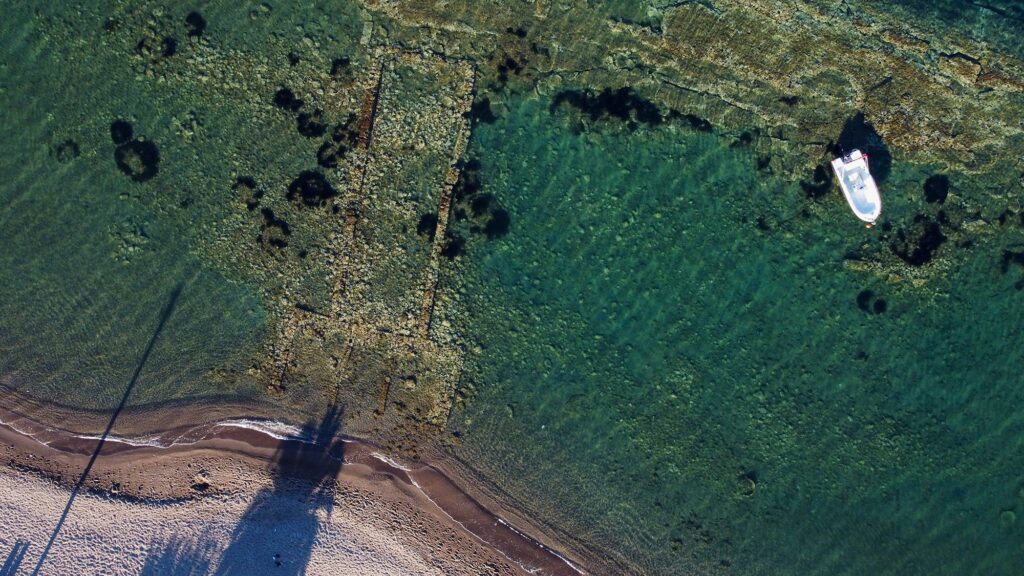
The discovery took place in shallow waters near a beach in the coastal town of Dikili, which is located in Izmir Province, in western Turkey. The discovery was made nearly two years ago, but the find has just been revealed now, after experts conducted research lasting a year.
Orhun, 39, is a software engineer working for the Brooklyn-based music company TuneCore, and he was on holiday with his wife, Seda Kaya Orhun, in the summer of 2020 when he said he found one, then multiple, round columns while diving.
They appeared to be part of a larger structure, so he then launched his drone to get a bird’s eye view of the area.
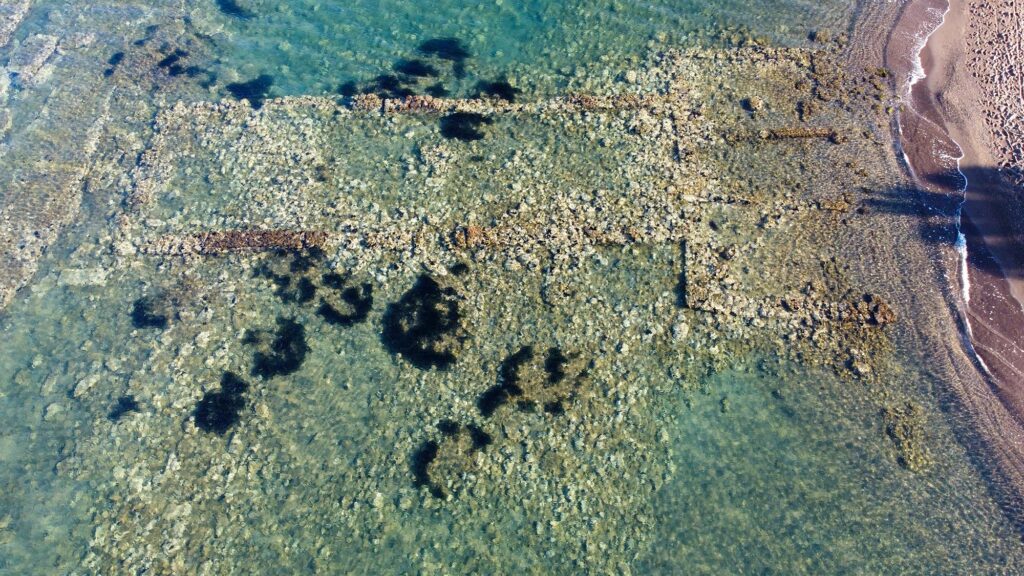
Orhun, who said he currently lives in Turkey, told Newsflash: “I love to swim by my in-laws’ beach house in Dikili, in Izmir Province. There is a lengthy stretch of sand facing the Greek island of Lesbos, on the Aegean shore.
“There is a reef, which is referred to as the ‘King’s Road’ by the locals. Being unsure whether the reef was of natural or archeological origin, I frequently snorkelled around the area looking for clues. I chanced upon a round, sunken column amidst some marble hewn by the ancients.
“I waited for a calm day to investigate from a bird’s eye view, took some aerial imagery, which revealed the outline of a ruined building so covert, it was overt. The structure is not possible to apprehend from the shore, but some rocks are visible where the surf breaks.”
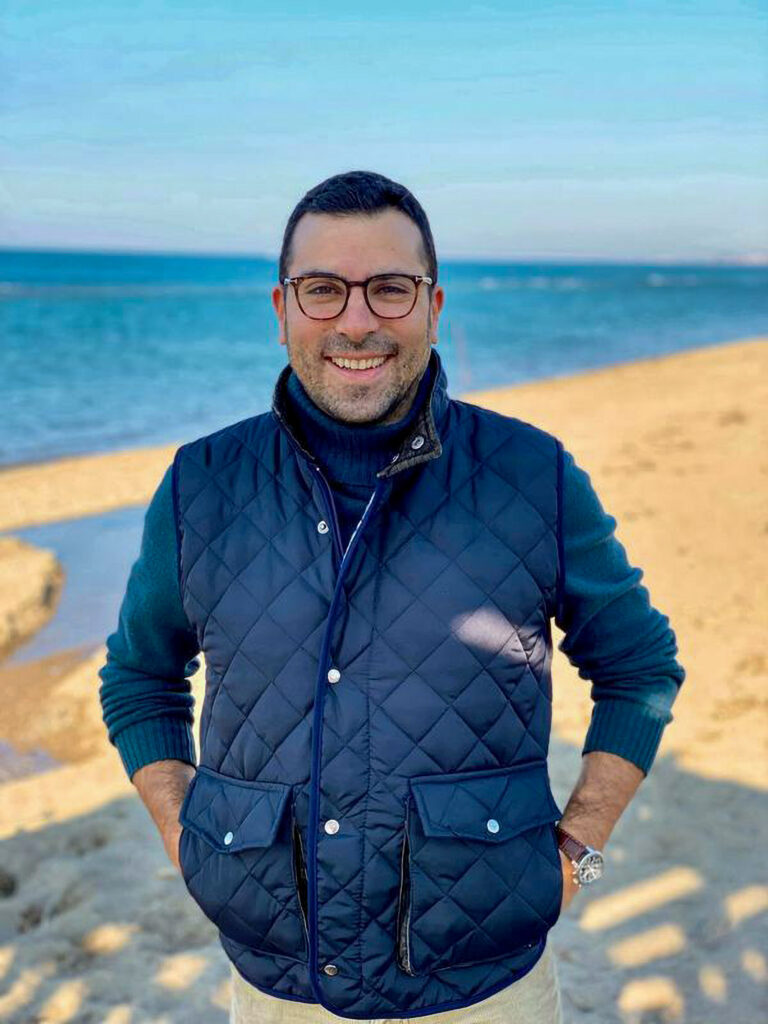
He added: “The beach venue nearby also displayed some columns and an ancient olive press strewn about its grounds.”
These images show what his drone captured on camera and what he would later show experts.
Orhun, who thought the columns might belong to a historical structure due to their resemblance to a 2nd-century basilica he had seen near a lake in Iznik, recorded the images using a drone and explained the situation to Dr Guler Ates, an associate lecturer at the Archaeology Department of Celal Bayar University and of the the Izmir and Bergama Museum Directorate.
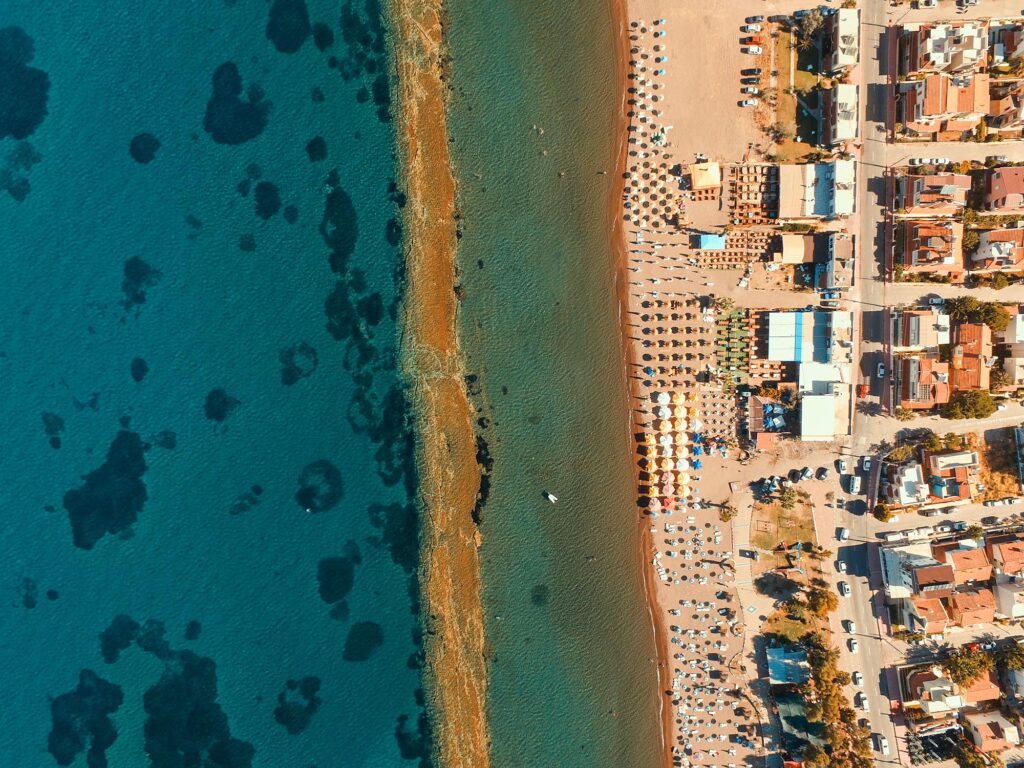
Orhun told Newsflash: “My mom has a PhD in architecture from University College London. I grew up with an appreciation for and some knowledge of ruins, old towns and historical places.
“The Aegean region of Turkey is rich in classical civilisations, with Izmir Province boasting two UNESCO listed sites, Efes (Ephesus) and Bergama (Pergamon).
“I initially suspected a Byzantine basilica, based on the plan. I contacted the Bergama Museum, and Dr Guler Ates. It was revealed the ruins were even more ancient: the Harbour of Atarneus.”
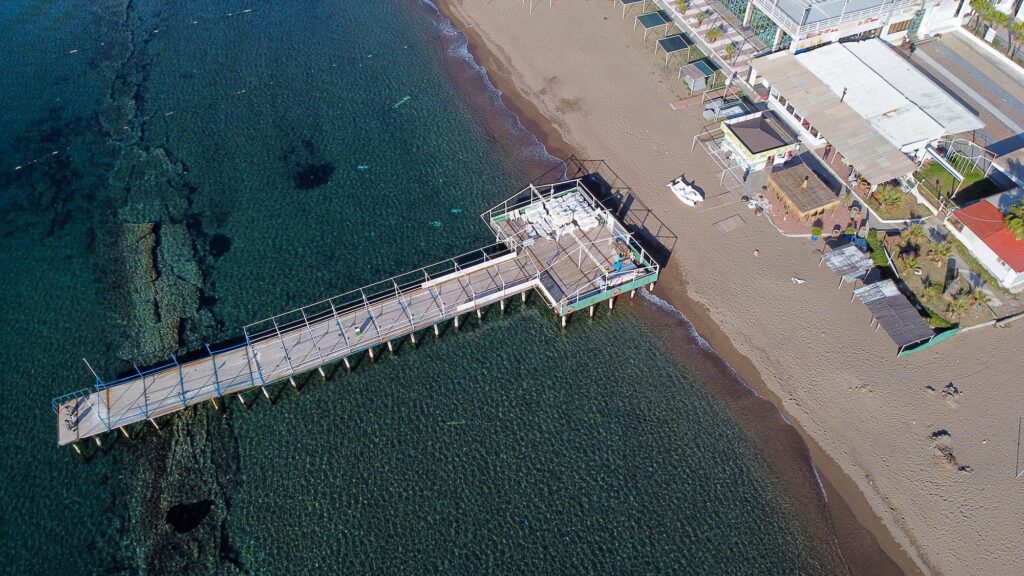
After a year of research conducted by experts from the Turkish Ministry of Culture and Tourism, it was indeed determined that the columns were part of the ancient city of Atarneus. Specifically, it was determined that the large structure to which the columns belong was the ancient harbour of the city, dating back thousands of years.
But Orhun, who said he is Turkish-American, with his family originating from Izmir, said: “Bergama Museum initially responded stating this was ‘the ancient Greek city of Kanei’, which is 30 kilometres away. I insisted this could not be correct, since the modern resort of Dikili is atop Atarneus.
“After a year of archeological surveys, my own drone footage, and my following up, they came to the conclusion that this is a pier belonging to the Harbour of Atarneus. The ancient city was abandoned, but the port seems to have been used until Byzantine days and possibly during the Turkish Beylik periods.”
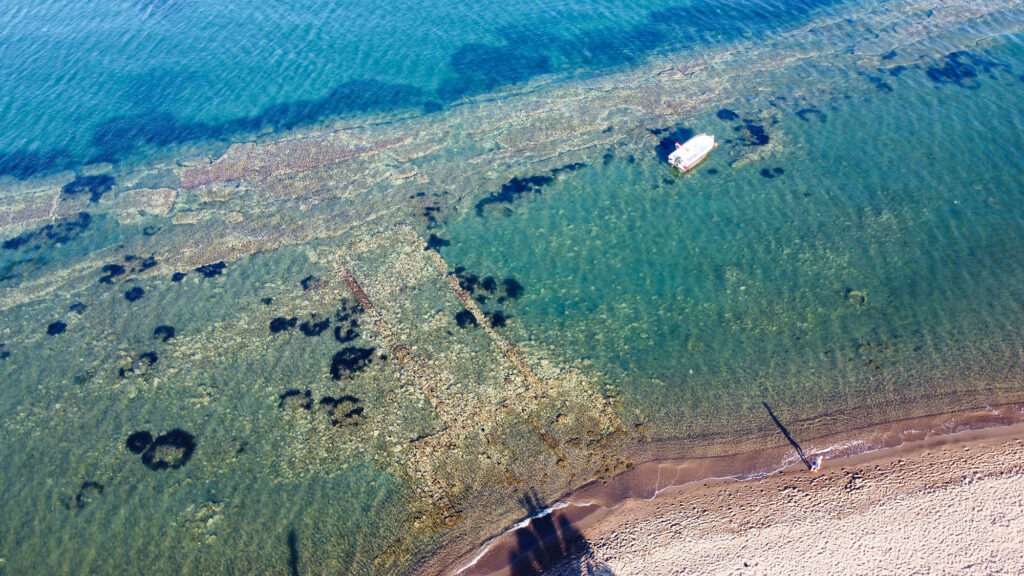
He added: “The Bergama Museum has listed the sunken ruins as a Grade 1 archeological site, effectively placing them under its protection.”
Orhun said: “The structure is set to the east of the site, which is built on an east-west axis and consists of a portico with tripartite colonnades and an abscess on the open sea side.
“That’s why I thought it was a basilica, but the museum finally said that this could be the harbour and the structure could be the pier structure.”
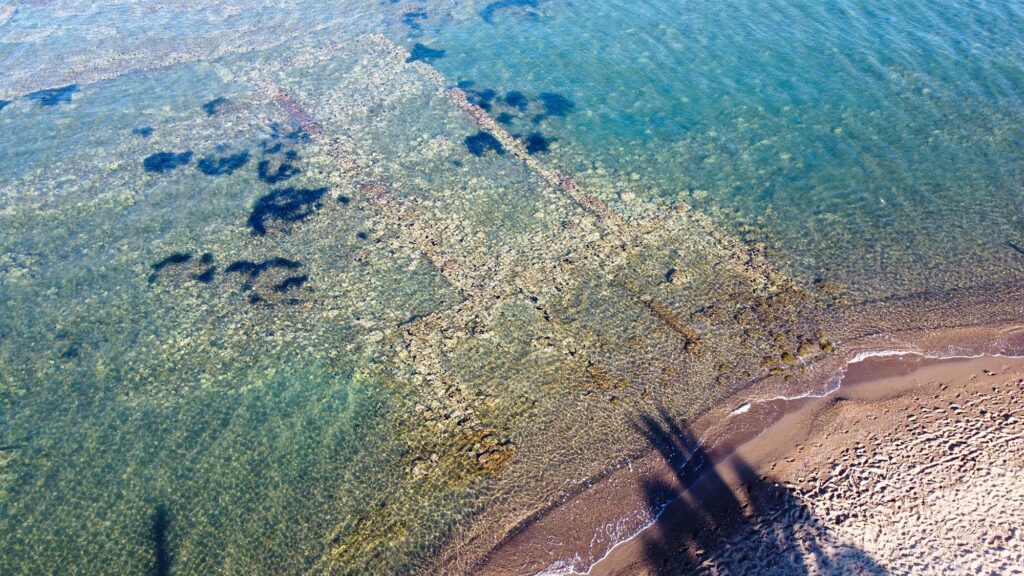
Atarneus was an ancient Greek city that flourished in the 4th Century BC under Hermias of Atarneus (dates unknown), who was Aristotle’s (384-322 BC) father-in-law. The city is mostly famous and widely known for its links to the famous Greek philosopher.
Aristotle was cared for and educated by Proxenus of Atarneus (dates unknown) after the death of his parents. Proxenus might have been his uncle. While at the Academy, the philosopher is said to have befriended Hermias, who would go on to rule Atarneus.
After the death of his most famous teacher, Plato (428-348 BC), Aristotle went to live with Hermias before marrying Hermias’ niece Pythia.



